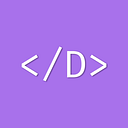1. Learn to Debug Code
Debugging code is a skill every programmer needs. This involves understanding errors and finding ways to fix them.
2. Practice Writing Code
Writing code is a key part of programming and requires practice to master.
3. Understand Data Structures and Algorithms
Data structures and algorithms are the foundation of programming and are essential to understand.
4. Develop Good Coding Habits
Good coding habits like indenting code, using comments, and following coding conventions will help make your code easier to read and maintain.
5. Learn a Programming Language
Most programming jobs require you to know at least one language. Start with a popular language like Python or Java and learn the fundamentals.
6. Get Familiar with Version Control
Version control is a must-know for any programmer. Understanding concepts like branching and merging will help you work better with teams and collaborate on projects.
7. Read Documentation
Documentation is essential for understanding how to use a language, library, or framework. Learn to read and understand documentation to help you write better code.
8. Automate Tasks
Learning how to automate tasks will save time and make you more productive. Learn how to use tools like cron and bash scripts to automate your work.
9. Use an IDE
An integrated development environment (IDE) is a great way to speed up your workflow and manage your code. Popular IDEs include Visual Studio Code and IntelliJ.
10. Keep Learning
Programming is an ever-changing field and there is always something new to learn. Stay up-to-date with the latest trends and technologies to stay ahead.
New to programming? Check out our Top 5 Awesome Python Beginner Projects to learn by doing!
Follow us on Twitter!
Happy Hacking!
